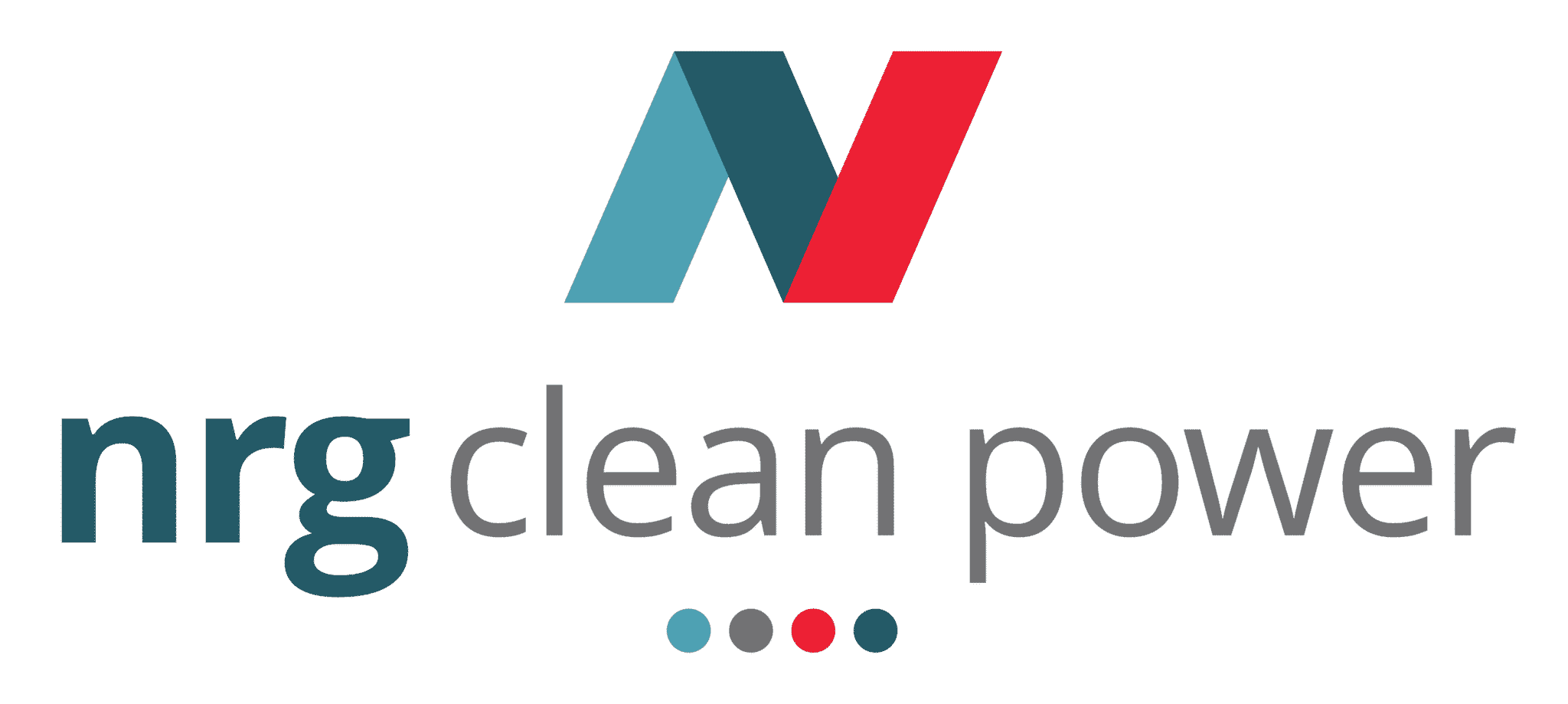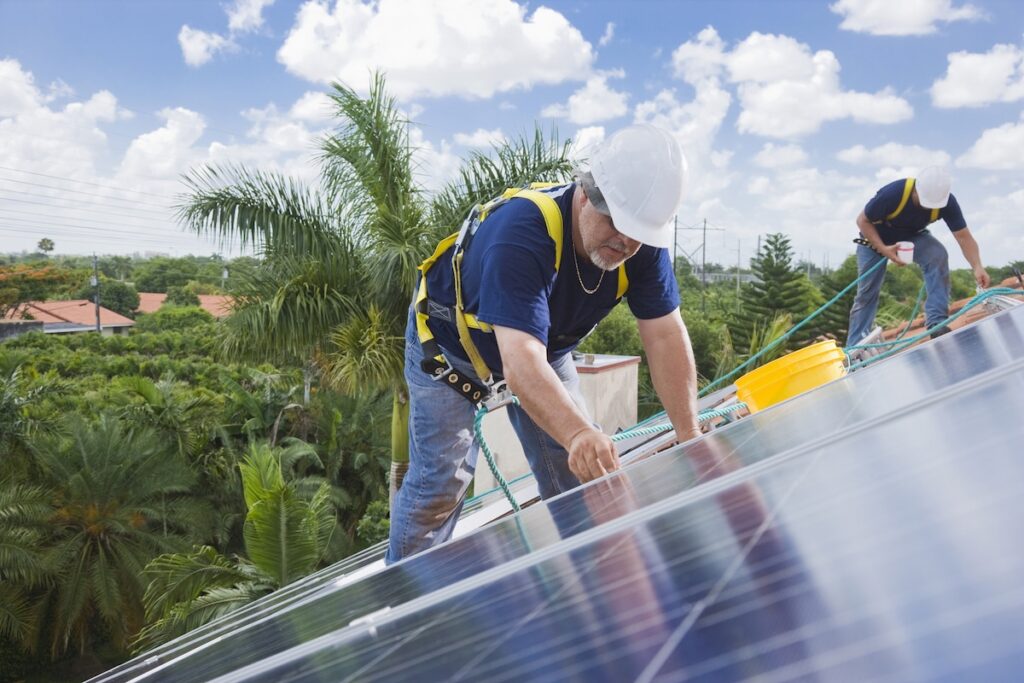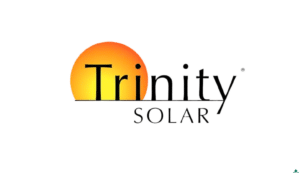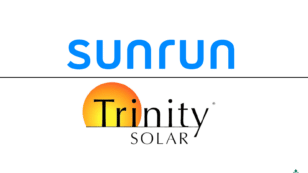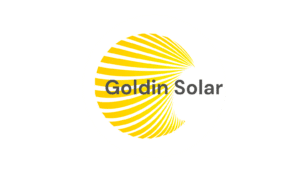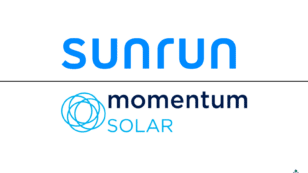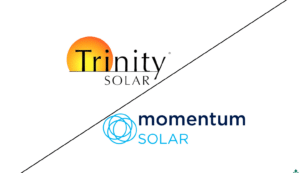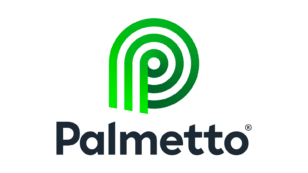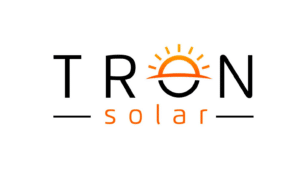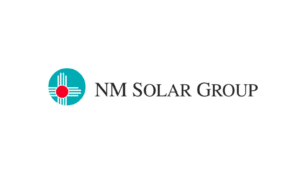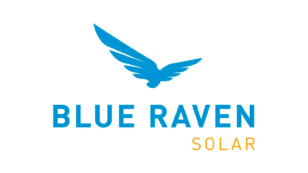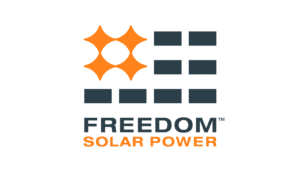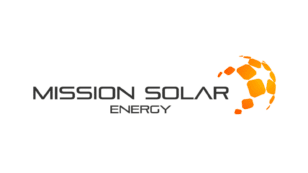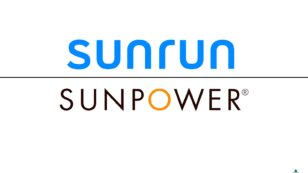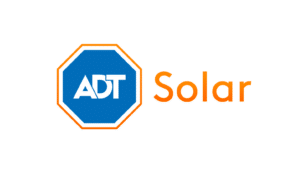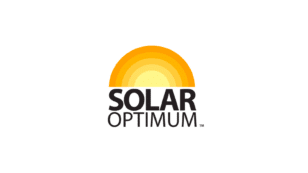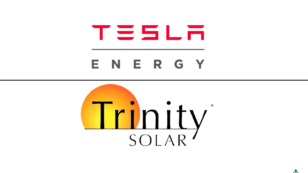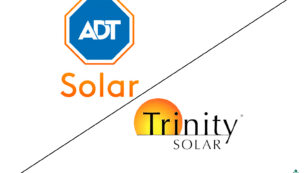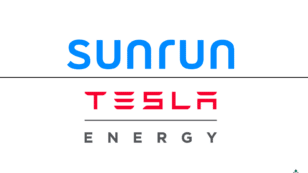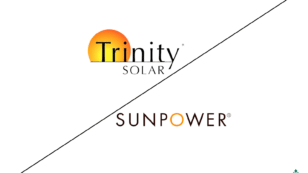
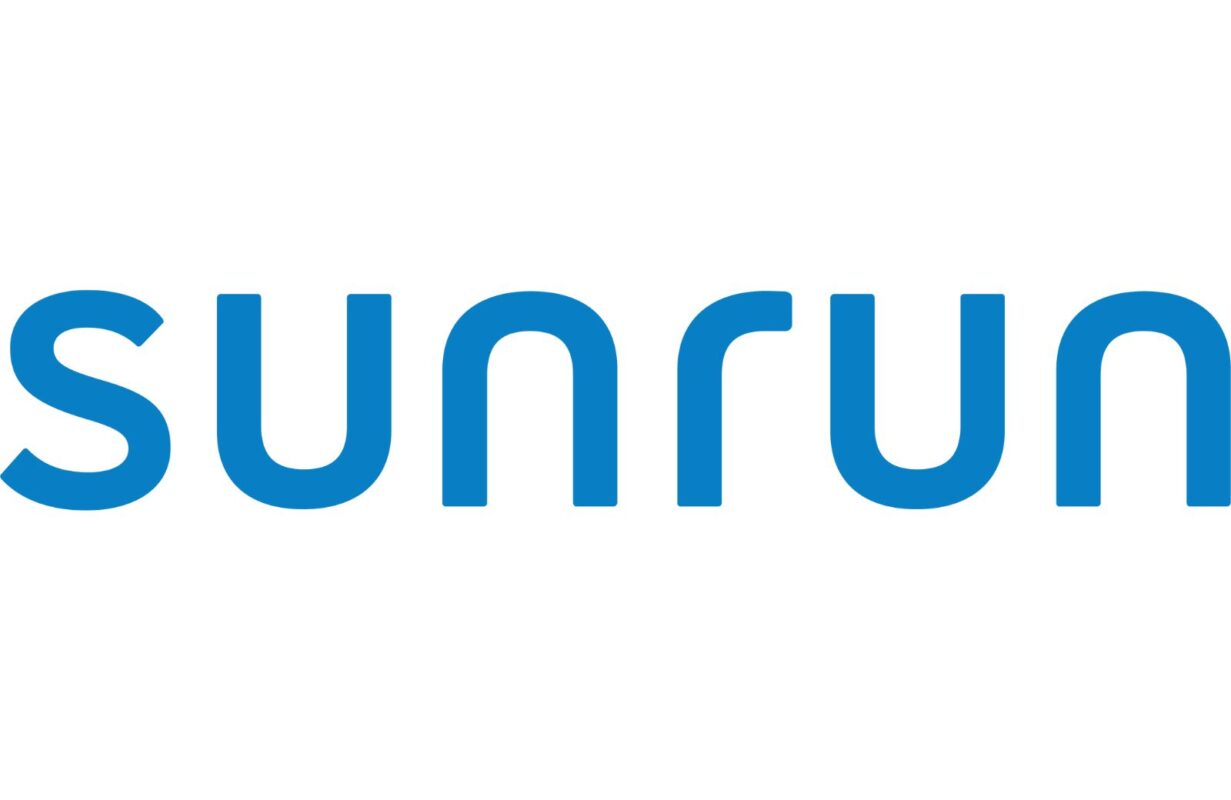
Sunrun Solar Review (2024 Cost, Panels & More)
In this review of Sunrun Solar, you’ll learn:
- Is Sunrun legit? Why is everyone asking this?
- Are Sunrun solar panels worth the price?
- What is the best way to pay for Sunrun solar?
Let us help you join thousands of homeowners in navigating the solar industry to find the best installer for your home!
Each product and or company featured here has been independently selected by the writer. You can learn more about our review methodology here. If you make a purchase using the links included, we may earn commission.
Based in San Francisco, Sunrun is one of the largest solar panel installation companies in America, with a service area spanning 22 states and U.S. territories. While its reputation is better than Vivint Solar, which it acquired in 2020, it still isn’t considered a particularly reputable solar company. It has struggled to provide good customer service and responses to warranty claims, so although its prices are relatively low, we don’t recommend going solar with Sunrun.
In this review, we’ll go over everything you need to know about Sunrun to see if it’s still a good option for your home, despite the company’s reputation. We’ll explore Sunrun’s pricing structure, product offerings, warranty coverage and more to help you decide.
Our Take on Sunrun
Overall, we don’t recommend choosing Sunrun as a solar installer unless you live in Puerto Rico, where there are few other big companies to choose from. The pricing is appealing, but the company has faced multiple class-action lawsuits, has a poor reputation when it comes to customer service and has amassed many complaints from customers on sites like the Better Business Bureau (BBB) and Google Reviews.
We’ll discuss some of the pros and cons of going solar with Sunrun in the following sections.

Sunrun

Regional Service
Average cost
Pros
- Regional
- Many financing options
Cons
- Some reported issues with customer service
- Some reported issues with door-to-door sales
What We Like About Sunrun
Sunrun may not have the best customer service reputation, but it does get a few things right. First off, it provides a nice range of products and services to choose from, including multiple panel brands, solar battery storage installations and electric vehicle (EV) chargers. The flexibility in the system components lets you customize based on your budget and the functionality you’re looking for from your system.
Sunrun also maintains relatively low pricing and accepts cash purchases, solar loans (through third parties), solar leases and power purchase agreements (PPAs). The result is a solar system that most customers are likely to be able to afford, and there’s a lot to be said for keeping solar equipment accessible to all. That affordability is likely to continue even as more states adopt net metering 3.0, which could make batteries a necessity and increase installation costs by between $10,000 and $20,000.
Finally, Sunrun covers a good portion of the country, so there’s less of a chance that you won’t fall within its service area than you’d see from a smaller provider.
What We Don’t Like About Sunrun
Unfortunately, we feel that the downsides of working with Sunrun outweigh the positives.
First and foremost, Sunrun has a pretty poor reputation in the solar industry. Not only have countless homeowners filed complaints regarding the company’s aggressive marketing tactics, but a lot of the company’s negative reviews also mention a lack of communication and delayed responses to warranty claims. The last thing you want when you’re paying tens of thousands of dollars for a Sunrun system is a lack of communication.
Second, Sunrun prioritizes leases by providing superior warranty coverage and free maintenance for leased systems, and the sales representatives have been known to push lease agreements. In reality, leases aren’t as beneficial for homeowners as loans or cash purchases, so the integrity of the company is instantly called into question.
Overall, Sunrun could be a decent option if you know you want a lease, but the company isn’t known to be particularly trustworthy and could very well leave you with minimal communication and delays after you sign your solar contract.
Watch Below: If you’d like a second opinion, take a quick 4 minutes to hear what this homeowner has to say, who used Sunrun to install solar panels over a year ago.
Sunrun Solar Panels
Sunrun used to install LG panels almost exclusively, but the tech company exited the solar industry in 2022. Since then, there hasn’t been a specific panel brand that Sunrun has preferred.
Some of the other options the company has installed include panels from Panasonic, Q Cells, Canadian Solar and REC. The likelihood is that the availability of each brand depends on your location, so you’ll need to get a free quote from Sunrun to see which brand and model will be installed on your home.
Of these other options, REC is notably the best when it comes to efficiency rating. REC panels top out at around 22.3% efficiency, which is just above Panasonic’s peak efficiency of 22.2%. Canadian Solar is known as more of a budget option, although it’s still a tier-one panel brand. Its panels come in at an average efficiency of approximately 18%.
The table below includes a side-by-side look at these three options from Sunrun as they compare to two other leading brands in the industry.
| Panel Type | Estimated Cost per Watt (installed) | Cost per Panel (installed) | Power Output | Efficiency Rating | |
| Canadian Solar | Monocrystalline and polycrystalline | $3.67 | $1,247–$2,128 | 340W to 580W | 15.88% to 20.6% |
| Panasonic | Monocrystalline and polycrystalline | $3.90 | $1,365 to $1,560 | 350W to 400W | 19.2% to 22.2% |
| REC | Monocrystalline and heterojunction (HJT) panels | $3.67 | $1,321 to $1,578 | 360W to 430W | 20.0% to 22.3% |
| Q Cells | Monocrystalline and polycrystalline | $3.47 | $1,214 to $1,422 | 350W to 410W | 19.5% to 20.9% |
| Industry Average | Monocrystalline and polycrystalline | $3.33 | $999 to $1,498 | 300W to 450W | 15% to 20% |
*Please note: the prices in the table above are averages based on consumer reports, commercial sites like EnergySage and Consumer Affairs, and solar cost data pulled from the Tracking the Sun Report, which comes from the Lawrence Berkeley National Laboratory.
Does Sunrun Offer Any Other Solar Products?
In addition to the solar panels mentioned above, Sunrun installs two battery options — LG Chem and Tesla Powerwalls — in its trademarked “BrightBox” storage systems. It also installs EV chargers and has a partnership with Ford to provide backup power for your home with the Ford F-150 EV, and it offers free system monitoring software. We’ll discuss each of these additional products in the following sections.
Solar Batteries
SunRun installs both LG Chem batteries and Tesla Powerwalls.
The LG Chem battery has a capacity of either 9 kilowatt-hours (kWh) or 16 kWh, depending on which model you choose. Unlike some other storage system manufacturers, LG only allows two of its RESU batteries to be stacked, so you can only have up to 32 kWh of storage with this battery option.
The cost of an LG Chem battery will depend on a few factors, but the average cost for a 9 kWh battery is around $9,000, and the 16 kWh battery will total closer to $15,000. These prices come from individual installers like 8M Solar that share cost data, as well as consumer reports online and direct-to-consumer retailers, like SunWatts.
The Powerwall is the most popular battery available right now, so it’s great that Sunrun offers this product. The Powerwall+ has a 13.5 kWh capacity, and you can stack up to six of them for a massive total storage capacity of 81 kWh. The average cost of a single Powerwall is around $11,000 before any credits. This is based on the $8,400 price tag pulled from the Tesla Direct site, plus an estimated $2,000 to $2,500 for the installation labor.
Level 2 EV Charger
Sunrun installs EV chargers in addition to batteries, so you can couple your renewable energy system with a means of charging your car right at home. It installs Level 2 chargers, which are the most common options for vehicles in America.
Ford Charge Station Pro
Sunrun has a partnership with Ford to provide installation services for equipment that allows you to use your Ford F-150 EV as a backup electric generator for your home. Sunrun can install the Home Integration System required to access your EV’s battery for home use and control how power flows back and forth between your truck and your home.
This is a very appealing option for homeowners who plan to purchase a Ford F-150 EV, as it adds immense functionality to what would otherwise only be a mode of transportation. It also allows you to maintain electricity through power outages using just your EV. The cost of the equipment to integrate your truck into your home solar system is around $3,900, which doesn’t include the installation costs. That cost data comes directly from Sunrun. Keep in mind that the book value on the truck, which would be an additional cost, is around $50,000, according to Kelley Blue Book.
Sunrun Solar Monitoring App
Sunrun has developed its own mobile app for solar monitoring, which gives you live feedback about your home’s electricity usage, solar production, estimated solar savings on your electric bill and battery capacity, if applicable. Your technician should help you install the app and set it up free of charge.
Enphase Solar Monitoring App
Sunrun predominantly uses Enphase inverters, and in some cases, usually depending on your local installer or, if you ask, you might be hooked up with the Enphase app for solar monitoring. This gives you similar information to what you’d see from the Sunrun app, and it’s also free to download and use.
How Much Does Sunrun Cost?
The average solar energy system from Sunrun is expected to cost between $27,000 and $29,000 before any solar credits or solar rebates are considered. These estimates are based on cost data pulled from consumer reports and commercial sites.
The estimate above also assumes that your home needs an average system size — 9 kilowatts (kW) — and that the price per watt from Sunrun is around the company average of $3.05. It also doesn’t include any add-on purchases, like batteries or EV chargers.
Keep in mind that providing an accurate cost of a solar power system from any provider is impossible without knowing specific information about your home because there are many factors that affect your all-in pricing. Your actual price will depend on the brand of the panel you have installed, your average energy consumption and the amount your local Sunrun installer marks up the equipment.
The best way to get an accurate estimate is to request a free quote from Sunrun.
Sunrun Financing Options
Sunrun accepts all traditional payment options, including cash payments, solar loans, leases and power purchase agreements (PPAs).
A cash purchase is generally the best option if you can afford it because it lets you take the federal investment tax credit (ITC), leads to panel ownership, comes with the fastest panel payback period and provides the highest long-term savings due to how quickly your energy savings offset your system total.
Sunrun offers solar loans through third-party lenders, which isn’t uncommon in the industry but is often less appealing than an in-house financing option, as you’d get with a solar energy company like Blue Raven Solar. Sunrun has worked with Mosaic and Sunlight Financial in the past, both of which have good reputations in the industry.
Sunrun pushes leases by offering better warranty coverage and free maintenance on leased panels. Unfortunately, leases don’t lead to panel ownership, so they preclude you from taking the federal tax credit and lead to less appealing overall savings.
The company also accepts power purchase agreements, but these also don’t lead to panel ownership, so they aren’t recommended.
If you’re dead set on Sunrun and can afford to purchase your solar array outright, we’d recommend that option, and a solar loan is our second recommendation. However, since Sunrun prioritizes a less appealing lease structure, we’d suggest going with a different installer altogether.
How Can You Save Money with Sunrun?
Sunrun may have somewhat attractive pricing given the quality of the panel brands it installs, but your total is still likely to come out to more than $25,000. Luckily, there are a few things you can do to save some money on your solar conversion with Sunrun. We’ll explain these below.
- Solar incentives
- Install a solar battery
- Choose more affordable solar panels
- Pay in cash
Take Advantage of Solar Incentives
One of the best things you can do to save money when going solar with Sunrun is to make sure your installation team will help you take advantage of the programs available to you. In addition to the ITC, you may have access to state credits, rebate programs and more that can save you money upfront or over time.
Unfortunately, you’ll likely need to stay on top of the representatives at Sunrun, as they’re known to be slow to respond and provide below-average customer service. Still, these perks can save you thousands of dollars, so it’s worth it to put in some time and effort to make sure you get access to them.
Consider Installing a Solar Battery
Next, you can consider installing either an LG Chem battery or a Tesla Powerwall with Sunrun. PV batteries will push your initial costs up, but they could end up saving you thousands of dollars over a few decades, depending on where you live.
We recommend you check out the solar benefits available in your area and from your utility provider to see if you have access to net metering, also called net energy metering or NEM for short. If you don’t, it means any excess electricity your panels generate will be lost to the grid.
In that case, paying more for a battery might be worthwhile. You can store that excess power and call on it for free if your panels ever underproduce for your home. A battery is especially useful if you don’t have access to NEM and face above-average electricity rates.
We should mention again that net metering 3.0, which was recently adopted in California, is likely to make its way to other states as well. If and when that happens, most customers will need solar batteries to see significant savings over time. It might be a good idea to install batteries before that happens, as you can take the 30% ITC for the cost of all equipment you install upfront, including batteries. That means it might be more affordable in the long run to buy batteries now.
Choose More Affordable Panel Brands If Possible
Sunrun has installed a decent selection of panel brands since LG — its previously preferred brand — pulled itself out of the panel manufacturing industry.
The most expensive brand from Sunrun is Panasonic, which averages around $4.00 per watt, or $36,000 for a typical 9 kW system. Simply choosing Canadian Solar panels, which Sunrun also offers in some areas, could mean prices closer to $25,000 for that same system.
Keep in mind that the company might upcharge some brands more than others, so the price difference might not be as dramatic as it could be in theory. However, you could stand to save some money by asking Sunrun for the cheaper options to be included in your solar estimate.
Choose a Cash Purchase or Solar Loan
Finally, you can save money over time by paying for your system with cash or using a solar loan. Choosing one of these options will be more expensive upfront — especially in the case of a cash purchase — but both lead to panel ownership and, as a result, greater energy savings in the long run.
Estimating how much you could save by choosing a cash purchase over a lease is difficult without knowing specifics about your home and your system, but we estimate that a lease saves an average of around $5,000 over the life of your system, whereas a cash purchase saves an average of over $25,365 when you account for increasing electricity costs.
Sunrun Installation Process
Going solar with Sunrun will be similar to the process you would expect with other providers, although the communication and follow-up from Sunrun aren’t expected to be great. Based on the company’s reputation and reviews, you should expect some delays on the part of Sunrun, and days or weeks going by without hearing from the company isn’t out of the question. You may also experience poor overall customer service, which Sunrun is, unfortunately, known for.
We’ll detail the process briefly below to give you an idea of what it looks like from start to finish.
Step 1: Property Assessment
The first step after requesting a quote from Sunrun will be the property assessment. A representative should come to your home to measure your roof, assess shading on your property and more. Unfortunately, there have been some customer reviews as recently as this year and last year that note that Sunrun sometimes completes virtual property assessments, which can lead to issues with quotes being inaccurate. At this point, Sunrun should know that virtual assessments aren’t as accurate as they should be.
If your Sunrun rep pushes for a virtual “inspection” in lieu of a physical one, we recommend you choose a different installer altogether.
Step 2: Design and Proposal
After the property assessment, your solar project will move into the design phase. Sunrun will design a system that fits your home and energy demands. Once that design is put together, you should receive a solar proposal, which includes all of the facts and figures you need to know about your solar energy system. When you sign the proposal, your project will move into the preparation phase.
Step 3: Permits and Scheduling
Next, the team at Sunrun will pull permits for your system and order components if necessary. The permitting and planning phase is the first area where customers have run into major delays and a lack of communication from Sunrun, unfortunately. It does seem like the company focuses on getting contracts signed and then often falls short thereafter.
In any case, the permitting and planning process will result in a scheduled installation date. Getting your installation on the calendar can take a few weeks or even months, depending on how backed up your building department and the Sunrun installation team are.
Step 4: Installation
On the day of installation, your Sunrun installers will arrive and begin the actual installation. Thankfully, there have been few complaints about the actual installation in customer reviews, so the team should be respectful of your property and will usually complete the installation in just a day or two.
Step 5: Inspections, System Activation and Interconnection
After your solar equipment is installed, your system will need to be inspected by an electrician and, likely, your utility company to ensure everything was done properly. Inspections can cause some delays as well, depending on how busy your utility provider is.
After all necessary inspections are done, your installation team will turn your system on and get you connected to the grid. If you have access to net metering in your area, it’s at this point that you’ll start accruing credits for any overproduction.
This is another area where Sunrun often falls short of expectations, according to numerous online reviews. In many cases, solar customers have found their installed panels sitting and waiting for something, but without communication from Sunrun’s team, it’s often unclear what that something is. This can be frustrating and expensive to have a system that isn’t usable, so this is another reason we recommend going with a different installer.
Step 6: Solar Monitoring and Incentives
Once your system is eventually turned on and is functioning as expected, you should be granted access to either the Sunrun or the Enphase solar monitoring app. These help you track your home energy production and consumption, as well as diagnose issues with your panels.
The Sunrun team should also be applying for tax breaks and rebates for you at this point, although customers have also had issues with this part of the process. We recommend staying on top of Sunrun to ensure your perks are taken and be ready to file for them yourself if Sunrun lags behind, as it has with many other solar customers.
Sunrun Warranty
Sunrun provides its “Sunrun guarantee” to all customers, which includes a 10-year warranty for workmanship, covering issues arising from poor installation techniques, including roof leaks.
We will say that not many companies offer roof leak coverage, but the actual value of Sunrun’s roof leak coverage is questionable, given its reputation for slow responses or even no responses to warranty claims. As a general workmanship warranty, the length is in line with the industry standard of ten years.
You also get a 25-year equipment warranty, which covers manufacturer defects and other issues with your panel performance. It should be noted, however, that there is no production warranty, which normally guarantees that your panels won’t degrade faster than a specific rate.
As mentioned above, Sunrun promotes its monthly lease and total lease options in part by making the coverage for leased systems even better. If you choose to pay a monthly payment for a lease — which we don’t recommend — you get a free insurance package for your system, plus free maintenance and repairs for the length of your agreement.
This lease coverage is better than what most companies offer, but the fact that you have to enter into a lease to get it makes it less valuable overall, in our opinion.
Overall, the warranty coverage you get from Sunrun is about average, although you need to keep in mind that the response times to warranty claims make it less enticing than what you’d get from other companies. Still, the normal lifespan of your panels is around 25 to 30 years and some last much longer.
If you pay for your system in cash, the average payback period is 11 years, meaning your warranty protection from Sunrun should last significantly longer than it takes for your system to become profitable.
Where Is Sunrun Available?
Sunrun is available in 21 states across the country, plus Puerto Rico. We’ll list all of the states in which Sunrun operates below.
- Arizona
- California
- Colorado
- Connecticut
- Florida
- Hawaii
- Illinois
- Maryland
- Massachusetts
- Nevada
- New Hampshire
- New Jersey
- New Mexico
- New York
- Pennsylvania
- Rhode Island
- South Carolina
- Texas
- Vermont
- Virginia
- Wisconsin (batteries are not available from Sunrun here)
Sunrun Customer Reviews
As we mentioned earlier, Sunrun has amassed mostly negative reviews for a few different reasons, the most common of which is poor customer service.
As of this writing, Sunrun has an A+ rating with the Better Business Bureau, but it also has a customer rating of 3.71 and 1,300+ complaints filed with the BBB in the past year alone, some of which have gone unresponded to. The company has a 1.5-star rating on TrustPilot, and many locations on Google Reviews average between one and two stars.
We’ll break down what we’ve seen in online reviews in the following sections.
Positive Reviews of Sunrun
Unfortunately, the positive reviews for Sunrun are few and far between, but they are present on all platforms. Positive reviews for Sunrun mention how knowledgeable and helpful the representative was, with some customers mentioning that their positive experience began in Costco, which has a partnership with Sunrun.
Some positive Sunrun reviews also mention that the rep was willing and able to help the customer apply for incentives and save money with tax breaks and other programs that would have otherwise gone unnoticed.
It seems clear that your experience with Sunrun will largely be based on the local branch with which you’re working. Overall, though, Sunrun has far fewer positive comments and reviews that mention good customer service and knowledgeability among the reps.
Negative Reviews of Sunrun
The negative comments about Sunrun are certainly in greater supply, with the large majority of reviews on most platforms sitting at just one star.
By far, the most common complaints we’ve seen from the dozens of reviews we read through were poor communication and customer service. In some cases, panels have been installed and sat for months without being turned on and with no answers from Sunrun as to when they would be activated.
Other customers have complained about warranty claims going unresponded to, including roof penetrations, leaks and panel maintenance. These issues are clearly present among customers regardless of their purchase option, so problems are expected to crop up whether you purchase your system and get the baseline warranty coverage or lease and get the “Sunrun guarantee.”
Other complaints note the aggressive sales tactics — including door-to-door sales, phone calls and marketing in Costco — as well as misleading marketing tactics.
Some comments refer to claims made by Sunrun reps to get contracts signed that turn out to be false. One of the most common examples is a misrepresentation of solar savings and a misleading explanation of the federal credit. Sunrun has faced multiple class action lawsuits, including at least one for misleading marketing and another for aggressive sales practices.
Sunrun has more negative reviews than we’ve seen from most solar providers and even from some companies that are significantly larger and cover the entire country. It’s clear that the problems don’t stem only from Sunrun’s size.
Sunrun vs Other Solar Providers
We would recommend most other installers over Sunrun for a few reasons, including the customer service, the lack of communication from the provider and the poor response time to warranty claims.
Sunrun makes solar more accessible than some companies with its leases and PPAs, but with recent changes to solar loan options, buying or financing your panels is more accessible than ever before. Even if you do want a lease, we’d recommend getting one from a company with a better reputation than Sunrun.
The table below includes a side-by-side look at Sunrun and how it compares to some other national solar providers.
| Sunrun | SunPower | Blue Raven Solar (BRS) | Tesla | Momentum | |
| Year Founded | 2007 | 1985 | 2014 | 2003 | 2009 |
| Areas Served | 20 states, plus Puerto Rico and Washington, D.C. | 50 states | 21 states | 50 states | 11 states |
| BBB Rating | A+ | A+ | A+ | N/A | A+ |
| Services Offered | Solar panel, battery and EV charger installations; solar monitoring | Solar panel, battery and EV charger installations; solar monitoring | Solar panel and battery installations; solar monitoring | Solar panel, battery, EV charger and solar roofing installations; solar monitoring | Solar panel and battery installations |
| Payment Options | Cash, solar loans, leases and PPAs | Cash, solar loans, leases and PPAs | Cash and solar loans | Cash, solar loans, leases and PPAs | Cash, solar loans, leases and PPAs |
| Average Price ($-$$$$$) | $$$ | $$$$ | $$ | $$$ | $$$ |
| Overall Star Rating (Click for our review) | 4/5 | 5/5 | 4.5/5 | 4.5/5 | 4.5/5 |
Regardless of the payment option you plan to use, we recommend SunPower over most competitors, including Sunrun. SunPower provides some of the most efficient panels in the industry, along with excellent customer service. The company is a bit on the expensive side, but we feel the investment pays for itself over time, especially given the peace of mind you get with the industry-leading warranty package.
If you’re looking to keep costs to a minimum, then Blue Raven Solar might be a better option. It’s not only super affordable but also has some of the most appealing and accessible financing options in the solar industry.
Below are links to some of our in-depth reviews comparing Sunrun to other national solar providers.
- Sunrun vs. Momentum Solar
- Sunrun vs. SunPower
- Sunrun vs. Sunpro (ADT Solar)
- Sunrun vs. Tesla Solar
- Sunrun vs. Trinity Solar
Bottom Line: Will Sunrun Work for You?
Unfortunately, we have to recommend against choosing Sunrun for your solar installation. The company has a poor reputation for customer service and response times to warranty claims. Plus, it pushes solar leases, which aren’t as beneficial for you as the customer and will end up saving you less over time than purchasing your panels.
Sunrun could be a decent option if you want an affordable lease option, but we’d still recommend another company, like SunPower, if you know you want a solar lease. SunPower has a better warranty package and a history of far superior customer service. The company is also more reliable than Sunrun when it comes to warranty claims, which provides you with the peace of mind you need when investing thousands of dollars in your home.
No matter what you choose to do, we recommend you get quotes from a few different providers and compare them to find the one best suited to your needs and your budget constraints. You can enter your zip code below to get free solar quotes from our top-recommended providers.
The cost information presented in this article is derived from a comprehensive analysis, incorporating data from multiple industry sources. The average cost per watt per state was calculated based on figures from Consumer Affairs, Energy Sage, and Berkeley Lab’s Electricity Markets & Policy Department. Additionally, monthly energy consumption and the average monthly cost of electricity were sourced from the U.S. Energy Information Administration, ensuring a well-rounded and accurate representation of the information presented.
Methodology: How We Reviewed Sunrun
When we review any solar company, we take a top-down approach to ensure we’re looking at every aspect of the provider. This helps us identify a company’s strong points and weak points, and we weight the different factors based on what we believe will lead to the best overall experience for you as the property owner.
We’ll detail some of the factors we’ve looked at for Sunrun below.
- Reputation (20%): First, we assess the overall sentiment about a company as expressed in online reviews and complaints on sites like TrustPilot, Google Reviews and the Better Business Bureau. Unfortunately, Sunrun has a poor reputation in the industry overall, despite its A+ rating with the BBB, and the large majority of reviews on these sites are negative.
- Cost and financing (20%): Next, the cost and accessibility of a company’s services help us determine how much they will appeal to customers in different financial situations and with different needs. Sunrun’s pricing is around average, and it does accept all payment options, although it prioritizes less beneficial options like leases. Still, Sunrun is relatively affordable and highly accessible.
- Services (20%): Companies that provide a wide range of services are more likely to appeal to a larger customer base and be a good option for property owners who want more out of their solar panel systems. Sunrun installs panels, solar batteries and EV chargers, and it also offers unique energy-sharing and home-backup packages for Ford F-150 EV owners. Additionally, Sunrun offers free solar monitoring, so it has more products and services than many competitors.
- Installation process (20%): Getting the installation right is a big part of providing a good customer experience, as delays in system activation and poor communication can quickly become frustrating. Not to mention that paying for a system that you can’t use for months on end is unnecessarily expensive. Unfortunately, Sunrun has notably slow installations that often let customers down because of a lack of communication.
- Customer experience (10%): We read through dozens of reviews for every company we review to get a sense of the overall customer experience from start to finish. Companies that are upfront and honest in their marketing and sales processes, communicative throughout the planning and installation phase and responsive when it comes to warranty claims post-installation score high in this category. Sunrun has a very low score because of questionable marketing and sales, poor communication overall and slow response times to warranty claims.
- Availability (10%): Finally, we look at a company’s service area to see how readily available it is to customers across the country. Sunrun serves 21 states, plus Puerto Rico. This is significantly larger than most installers in the country, although it’s not quite as impressive as SunPower and Tesla.
FAQs: Sunrun Solar Reviews
Since Sunrun is such a massive and well-known solar company, we get a lot of questions about it from customers just like you. We’ll answer some of the more common questions we see about the provider below.
Sunrun is a legitimate company in the sense that it’s not a total scam. However, there are some serious downsides to working with this provider, and we generally don’t recommend any homeowners choose to move forward with the installer. It has been known to use misleading and aggressive sales tactics, it prioritizes less beneficial lease agreements and it has been known to respond slowly or not at all to warranty claims.
Some of the biggest downsides of working with Sunrun include the questionable sales process and the overall lack of communication. Based on reviews we read through, some of the sales reps misrepresent information about the federal tax credit, installation timelines and long-term savings. Countless customers state that the company is untrustworthy overall.
The lack of communication is an even bigger issue for many, as the company is not only radio silent for much of the planning and grid-connection process, but there are also massive delays, sometimes for months. This is not only frustrating but could needlessly cost you money if your panels cannot operate after installation.
There have been several class action lawsuits against Sunrun in the past, including at least one for misleading marketing and sales and one for aggressive sales tactics. We usually recommend against choosing a solar installer that has been involved in lawsuits, and Sunrun is no exception.
Yes. Costo and Sunrun have partnered to provide access to affordable solar solutions in Costco locations. This is why you often see Sunrun kiosks and salespeople pitching solar services in stores. Sunrun can also install Costco solar panels because of the partnership.
Solar Provider reviews:
- Sunpower Review
- Tesla Review
- Momentum Solar Review
- Titan Solar Review
- Sunnova Reviews
- Encor Solar Review
- Semper Solaris Review
- Solar Optimum Review
- Sunbadger Solar Review
- Sun Services Review
- Solanta Review
- Risingsun Solar Review/ Astrawatt
- Tron Solar Review
- Trinity Solar Review
- Sierra Pacific Solar Review
- Seal Solar Review
- Green Home Systems Review
- Palmetto Solar Review
- Nm Solar Group Review
- Ion Solar Review
- Grne Solar Review
- Enlite Home Review
- Suntuity Solar Review
- Elevation Solar Review
- Diablo Solar Review
- Bright Planet Solar Review
- 1st Light Energy Review
- Solar Sage Review
- Big Dog Solar Review
- Windmar Solar Review
- Solgen Power Review
- Trismart Solar Review
- Vision Solar Review
- Positive Energy Solar Review

 233k
233k  41k
41k  Subscribe
Subscribe 
